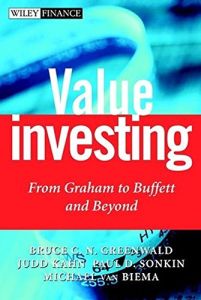Join getAbstract to access the summary!

Join getAbstract to access the summary!
Bruce C.N. Greenwald, Judd Kahn, Paul D. Sonkin and Michael van Biema
Value Investing
From Graham to Buffett and Beyond
Wiley, 2001
What's inside?
Value investors find the highest values when very careful thinking precedes very careful buying.
Recommendation
This is a very lucid, practical introduction to the principles of value investing. It is detached, relatively objective considering the authors’ bias in favor of the subject, doesn’t hype or hard-sell and, on the whole, would be a valuable addition to any investor’s bookshelf. If you’re a relative beginner, your shelf will also need to include a dictionary of financial terms - the authors assume you already know the vocabulary. And who is the Graham cited in the title? He is Benjamin Graham, who all but invented security analysis. With coauthor David Dodd, he produced the book Security Analysis in 1934. Later, Graham wrote The Intelligent Investor. Both books are investment classics and have been revised and re-issued. This one may endure, as well, based on its thorough exposition on how to value a company and its instructive profiles of value investing heavyweights. getAbstract.com recommendation: strong buy, long term hold.
Summary
About the Authors
Bruce C.N. Greenwald is the Robert Heilbrunn Professor of Finance and Asset Management at the Columbia University Graduate School of Business, where Michael van Biema is a member of the finance faculty. Judd Kahn taught history, served in city government and worked as a securities analyst, CFO and management consultant. Paul D. Sonkin is investment manager of the Hummingbird Value Fund. All four authors are members of Morningside Value Investors, LLC, an investment advisory firm.
















Comment on this summary